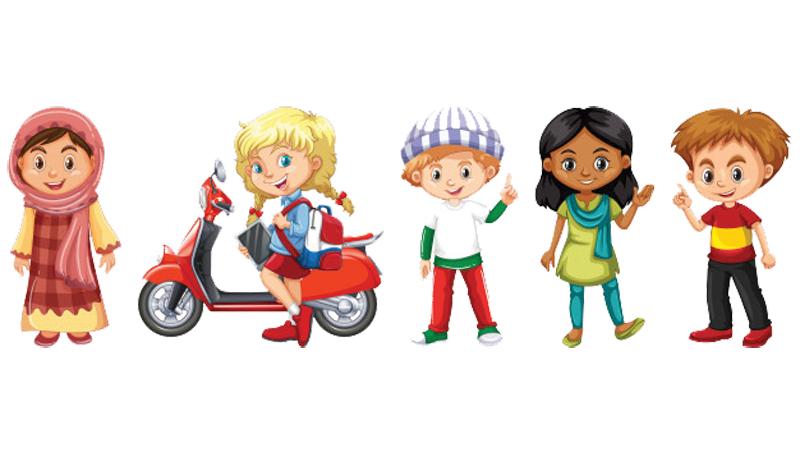
English has borrowed a large number of words and phrases from foreign languages. Here are some of them.
Oxymoron (Greek) a deliberate combination of two words that seem to mean the opposite of each other Eg. Cruel kindness or loving enemy
Pachyderm (Greek) an animal with a thick skin, such as the elephant
Paddy (Malay) rice or a piece of wetland in which rice is grown
Padre (Italian) a priest, especially one in the army
Paean (Greek) a happy song of praise, thanks, or victory
Pagoda (Portuguese) a Buddhist temple that has several levels with a decorated roof at each level
Palisade (French) a strong fence made of pointed posts
Palladium (Greek) a soft silver-white metal that is often combined with gold and silver and used to cover an object with a very thin layer of material
Panacea (Greek) something that people think will make everything better and solve all their problems
Panache (French) a way of doing things that makes them seem easy and exciting, and makes other people admire you
Pandemic (Greek) a disease that affects people over a very large area or the whole world Eg. AIDS pandemic
Pandemonium (Greek) a situation in which there is a lot of noise because people are angry, confused or frightened
Panegyric (Greek) a speech or piece of writing that praises someone or something a lot
Panorama (Greek) an impressive view of a wide area of land
The Lotus Tower offers a panorama of the city.
Pantheon (Greek) all the gods of a particular people or nation
Paparazzi (Italian) photographers who follow famous people in order to take photographs they can sell for newspapers
Papier-mache (French) a soft substance made from a mixture of paper, water and glue which becomes hard when it dries and is used for making pots and other objects
Papyrus (Greek) a plant-like grass that grows in water; also a type of paper made from papyrus and used in ancient Egypt
Par (Latin) / be on a par with (to be at the same level or standard)
The wages of clerks were on a par with those of manual workers.
Paralysis (Greek) the loss of the ability to move all or part of your body or feel things in it
He had paralysis of the lower body.
Paranoia (Greek) an unreasonable belief that you cannot trust other people or that they are trying to harm you or have a bad opinion of you
Paraphernalia (Greek) a lot of small things that belong to someone, or are needed for a particular activity
We had all the travelling paraphernalia.
Parasol (French) a type of umbrella used to provide shade from the sun
Parathe (Hindi) a flat cake of unleavened bread
Par avion (French) by air
Parenthesis (Greek) a round bracket
The figures in parentheses refer to page numbers.
Par excellence (French) the very best of a particular thing
Pariah (Tamil) someone who everyone hates and avoids
Parole (French) permission for someone to leave prison on the condition that they promise to behave well
Parquet (French) small flat blocks of wood fitted together in a pattern that covers the floor of a room
Pas de deux (French) a dance in ballet performed by a man and a woman
Passe (French) no longer modern or fashionable
Pastiche (French) a piece of writing, music or film that is deliberately made in the style of someone or something else
Pastille (French) a flavoured or medicated lozenge or candy
Pater (Latin) father
Pathos (Greek) the quality that a person, situation, film or play has that makes you feel pity and sadness
Patio (Spanish) a courtyard, terrace or other area adjoining a house suitable for outdoor activities
Pax Romana (Latin) the period of peace and prosperity that existed under the rule of ancient Rome
